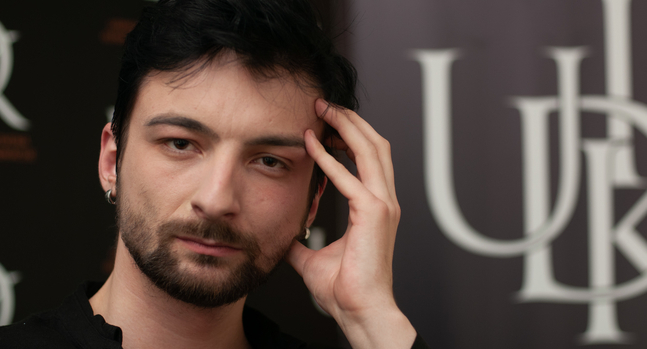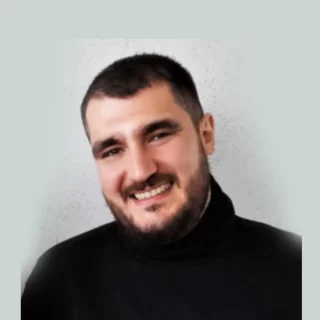Twenty-nine years have passed since the killing of Sarajevan civilians in Kazani. The remains of somewhat more than 20 persons have been found so far. They all are victims of Mušan Topalović Caco and his colleagues from the Tenth Mountain Brigade of the Army of the Republic of Bosnia and Herzegovina. The mortal remains were exhumed in locations Kazani, Gaj and Grm maline in 1993. Most of them were exhumed at the cemetery Sveti Josip in Sarajevo. Fourteen soldiers were found guilty[1] of brutal murders and failure to report crimes and perpetrators. None of them were found guilty of war crimes.
The proceedings against Samir Bejtić started in 2002. The accused was extradited from Germany. He is one of members of the former Caco’s brigade. The man from Gračanica killed the illegally mobilised civilian Zoran Vučurović[2] with a gun in Kazani on December 25, 1992. The victim had lived in the Sarajevan street Skenderija until the war. His father was a retired colonel of the Yugoslav National Army. However, the murderer mixed him up with the nationalist Božidar Vučurević from Trebinje due to the fact that they shared almost same last name. Only one letter of Zoran’s last name was different, but it has not saved him. Samir Bejtić doused the body of the victim with a thinner and set him on fire. In 2012, the Institute for Missing Persons of Bosnia and Herzegovina received DNA results for Zoran or Miodrag Vučurović. They are brothers. Zoran’s brother Miodrag disappeared in 1993, also in Sarajevo. Their father Dobrivoje provided the DNA sample for comparison. It cannot be established with certainty whose brother’s mortal remains were found. They have remained unidentified until today. Their father did not live long enough to bury his sons. He died in Belgrade in 2003. The court charged Samir Bejtić also with the murder of two non-Bosniaks, Duško Jovanović and Ergin Nikolić. According to the indictment, he participated in their beating at the command of the Tenth Mountain Brigade in mid-September 1993. According to the indictment, Jovanović and Nikolić were later on transported to Kazani, accompanied by a group of soldiers and Mušan Topalović. They continued torturing them in a dug-out. In the end, they killed them.
Samir Bejtić was found guilty of war crime in Kazani by the Cantonal Court in Sarajevo in 2006 and received a 14.5-year prison sentence. The proceedings were then repeated several times. Two times, Samir Bejtić was found not guilty – in 2008 and 2011. In 2015, the Supreme Court of the Federation of Bosnia and Herzegovina overturned the last judgment in which the accused Bejtić was found not guilty. The case was referred back to the Cantonal Court of Sarajevo for further examination. The Supreme Court overturned the judgments of the Cantonal Court every time. It pointed to serious violations of provisions of criminal proceedings. The proceedings are held for the fourth time and still ongoing. The person responsible, who commissioned the murders, was killed in 1993. According to the official version, Mušan Topalović tried to escape. A pity. He could have revealed a lot of information. He would have probably compromised a significant number of politicians back then, who enabled him to go on rampages in the city.
However, although he was buried, Caco still lives among us. He has never been tried as a criminal. He was paid respects as a hero. A memorial plaque with his name was put up in the capital of Bosnia and Herzegovina. On the wall of the Primary School Edhem Mulabdić in Sarajevo. He was buried in the cemetery for war veterans in Kovači. Around 10,000 people attended his funeral in 1996. The label ‘criminal’ was thus removed from his name. He was tacitly granted a medal for having liberated Sarajevo. Alija Izetbegović illustrated this with his words that Caco was both a hero and criminal. And while politicians have been fawning over the dead Topalović all the time, there was almost nobody who honestly bowed before the victims. And they were killed only because they had different names.
When the mayor of Sarajevo decided to comply with the initiative of NGOs in 2021 and build a memorial in Kazani, the activists and advocates could not even imagine that important data would be left out from the memorial plaque. Benjamina Karić invited numerous individuals, organisations and advocates of memorialisation in Kazani under the pretense that she wished to consult them in relation to the memorial. However, the true intention was to obtain their approval for a decision that had already been taken. She has not consulted family members of the victims.
In spite of the controversy and disagreement, the plaque was put up. Of course, nobody was against the plaque itself. But we have to ask ourselves what is its purpose, if we do not draw any conclusions from the carved stone on this occasion. The current memorial constitutes a deception of the public. It does not correspond to the content of similar memorial plaques put up in Sarajevo. The current plaque provides neither the context of the event nor the important piece of information that the list of killed persons is not final. And there is not even a letter about the perpetrators of these crimes.
The shameful memorial plaque in Kazani is a product of a type of politics led by politicians that are willing to do anything in order to obtain votes. The memorial plaque in Kazani that should pay respect to innocent non-Bosniaks from Sarajevo that were killed carries a clear message: ”Civilians were killed, criminals were rewarded”.
Edvin Kanka Ćudić (1988) is a Bosnian and Herzegovinian human rights activist, who is best known as the leader of the Association for Social Research and Communications (UDIK), an organisation advocating human rights and reconciliation in the former Yugoslavia.
[2] https://detektor.ba/2016/06/16/vucurevic-nije-htio-pucati-na-kolege-u-sarajevu/




